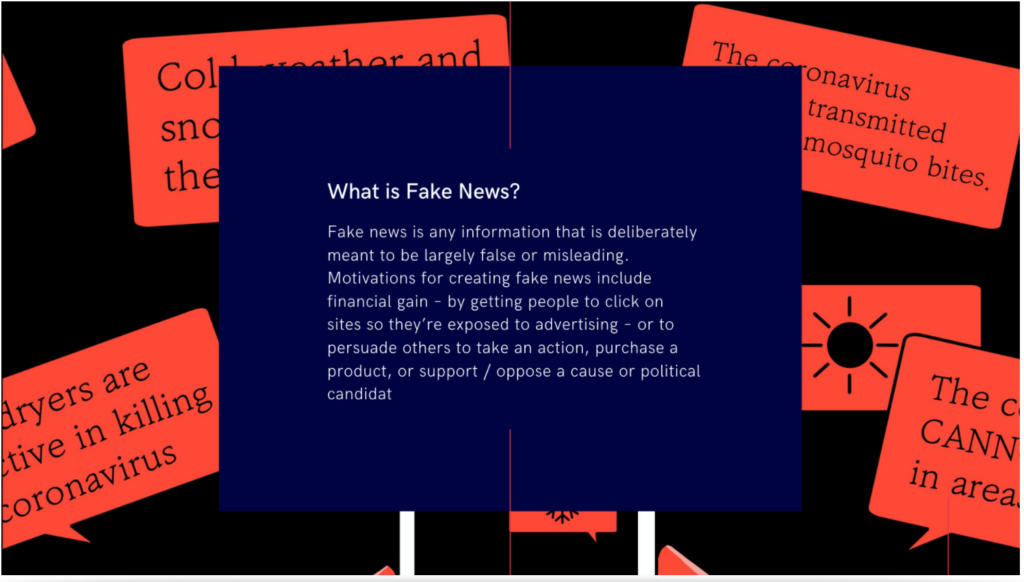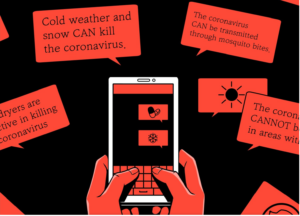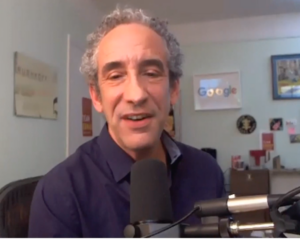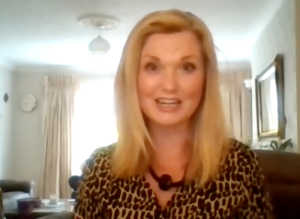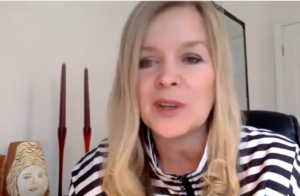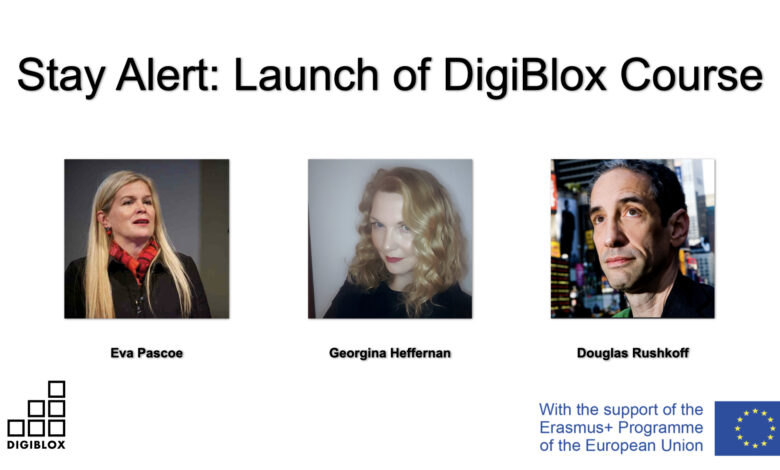
New DIGIBLOX Qualification Launched to Meet Demand for Digital Skills
New Erasmus + funded digital qualifications will provide the skills for a wide range of digital jobs
Earlier this month, on June 4th, we launched our new Digiblox digital media qualification at a virtual event which was broadcast from London via Zoom. The event started with an introduction to Digiblox and a discussion around how to stay alert in our ‘New Normal’, which was followed up by a lively debate on Fake News in the Era of COVID-19 and the Future of Work.
After sharing an intriguing statistic that showed “Over 87% of people admit to falling for Fake News,” Georgina Heffernan, former journalist and digital media professional, asked the first question: “ Why does fake news get shared so rapidly?” She was broadcasting from her home in, Co Wicklow, Ireland, and was joined by a distinguished and experienced panel of UK media professionals and influencers including media theorist, DR Richard Barbrook, futurist, and author of Cyberia, Douglas Rushkoff plus Cybersalon founder and moderator, Eva Pascoe (pictured below).
Although all four panelists had different responses, the large audience heard reflections on the importance of fact-checking and the need to teach the fundamentals of media literacy. “What we’re looking at is not it is not a technological problem,” said Heffernan, “it is not a social media problem, it is a people problem,” she added. “It’s important for students to be able to analyse what they are reading to determine whether it is PR, journalism, or opinion. They should be able to look at all sides of the story to be able to understand if what they are reading is the truth or propaganda.“
“I think that media literacy is less of a question of which is fake news and which isn’t,” Douglas Rushkoff responded, “but which intends to be fake news and which doesn’t.” Richard Barbrook (pictured below) then went on to explain that although the media seems to be free and independent, it is often skewed. “When you look at the television stations from all around the world – French news and American news – they’ll often show exactly the same pictures and spin it differently. That’s the best way to get people to realise that there isn’t one true news; you take information and you have to interpret it. What Europeans are good at doing is watching the news and being able to read in between the lines. ”
As panelists shared stories of their research and personal experiences, it became clear how much impact the idea of “fake news” has had. “I’m Polish, so I was brought up with newspapers lying every day, every word, every column until I left,” Eva Pascoe responded. “The difference is big. The difference is that it was a single source, it was the state, you just knew that the state lied end-of, now, everybody lies, so it’s multiple sources.” Georgina Heffernan raised the point that traditional news sources can have their own agenda also ” If you’re only watching say CNN, you only get half the story, or if you’re only watching Fox, you’re only getting half the story” she added. Heffernan noted that fact-checking stories has always been and still is a critical part of reporting.
The panel ultimately agreed on the importance of media literacy but acknowledged that fake news remains a challenge for the media as they battle with it in the misinformation ecosystem. After the panel discussion, the audience had the chance to ask questions of their own via online polls. Eva Pascoe then shifted the conversation to the impact of the COVID-19 pandemic on the future of work. After joking that we might all be ‘replaced by robots’ in the future, Pascoe went on to say that ‘the reason why we developed this course, is really to get people to ‘Stay Alert’ against fake news but also to help people to get a job and keep it if possible – but what jobs will be out there?” she asked.
Douglas Rushkoff (pictured above) then commented about the opportunities available and his thoughts about the new world of remote work. “I am looking forward to full-spectrum live interaction again,” he remarked. “One thing about these digital spaces is that you cannot establish rapport, not the same way. You can’t see if my pupils are getting larger, yours smaller, you can’t see if our breathing is syncing up, so all of the biologically evolved, painstaking mechanisms for establishing rapport and trust with someone else – they’re just not there.” He went on to say that remote working through Zoom is an unfamiliar new environment that many people will need to adapt to in the future as our lives and work move online.
The panelists all agreed that the “new normal” isn’t necessarily a business world without working in an office, it’s just a world where we focus on work instead of the office. “There’s a housing shortage in a lot of these big cities so freeing up the offices for cheaper housing would be a very good idea,” Richard Barbrook suggested. The panel agreed that the biggest and most obvious advantage to telecommuting is not having an actual commute to work and this would have a positive impact on the environment by reducing greenhouse gas emissions.” I think that if one good thing comes out of the pandemic, this would be it,” Georgina Heffernan ( pictured below) agreed. ” If society moves towards a remote working model, not only will it be better for the environment but it will help solve the housing crisis – a massive problem in Ireland – because people could work remotely and, therefore, have more choices around how and where they work.”
Douglas Rushkoff shared the perspective that employment itself is, in his view, a very temporary strategy for work. “Employment was invented in the late middle ages when people were no longer allowed to trade with one another and they started selling their time. That’s when they started putting a clock on the tower in the middle of town and people started selling their time by the hour.” Rushkoff emphasised how traditional models of work are evolving to embrace different working styles such as cooperatives and cottage industries. “We are very interested in co-ops,” Eva Pascoe responded. “As you know Digital Liberties is a co-operative. It’s not exactly a walk in the park but we are making it work, as someone brought up in the chat Fairbnb is a co-operative version of Airbnb , so it can be done in a slightly different way.”
The panel then went on to discuss the positive impacts of social media in allowing people to mobilise, organise and share support during the Black Lives Matter protests and how this is a counterpoint to the misinformation and distrust around COVID-19. ” It’s interesting the way Tik Tok in America, which is teenagers making silly videos for each other, has become very politicised,” commented Richard Barbrook. ” During the revolution over the last week or so, suddenly Tik Tok is filled with white Americans talking about racism and the problems of their society and their experience going on demos and getting tear-gassed and things like that; it was an apolitical platform which quickly became very politicised.”
“Isn’t it very positive that although we had fake news, misinformation, and disinformation, we also had Blackout Tuesday, which was quite powerful,” Pascoe responded. “Even the biggest of big brands, losing millions but putting the black square on their social media feeds because they knew if they didn’t there would be trouble.” The panel agreed that the media, in this instance was being used as a powerful force for good and was also bringing us back together as a collective.
Wrapping up the panel, Heffernan offered the following tips for how to be a responsible consumer of news in a “fake news” saturated world:
- Don’t automatically share stories. Take the time to read and evaluate the article before sharing;
- Be aware of the concept of selective exposure, which explains that people generally seek out stories they agree with and when they find something that doesn’t coincide with their beliefs, they automatically assume it’s fake.
- Be wary of news sites with strange names. If you are unfamiliar with a news source, do some research before sharing.
- When friends or family share stories from fake news websites, let them know it’s not real and ask them to take it down.
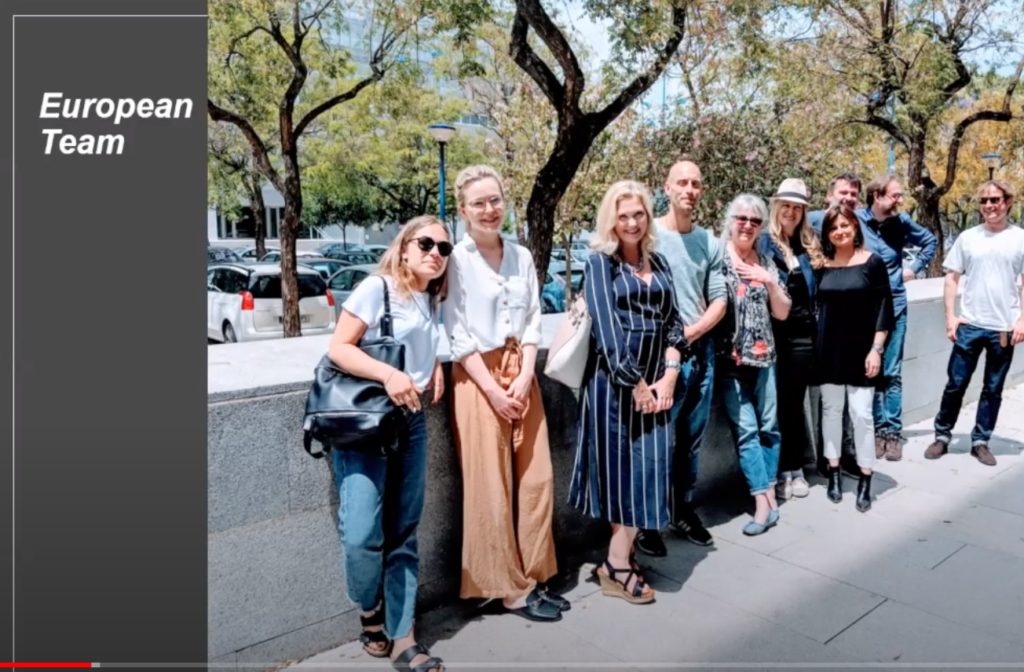
Watch the event on YouTube or go to our Digiblox website for more information.
Originally published by Capacity Ireland on LinkedIn

